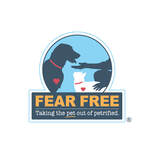What vaccines does my dog need?
- Rabies
- In the state of Kansas, all dogs must be kept current on Rabies vaccination.
- Rabies is a virus that causes neurologic symptoms and eventually death. It is contagious to people. Rabies is spread through contact with saliva (bite wounds) from affected animals.
- DA2PP
- This vaccine is also commonly known as the “distemper parvo vaccine.” It actually contains distemper, adenovirus type 2, parainfluenza and parvovirus. Distemper is a virus that causes respiratory and neurologic symptoms. Adenovirus can cause respiratory symptoms and liver disease. Parainfluenza can cause respiratory symptoms. Parvovirus causes severe vomiting and diarrhea.
- Leptospirosis
- Leptospirosis is a bacterial infection dogs can get from licking anything outside that wildlife has urinated on. It causes kidney and liver failure. It is also contagious to humans. Leptospirosis is very common in this area. Thus, it is one of the most important vaccines to give your dog.
- Bordetella
- Also known as “kennel cough vaccine,” the Bordetella vaccine helps to prevent or minimize symptoms of kennel cough. Dogs that get groomed, go to dog parks, or go to doggy daycare/boarding are at the highest risk for kennel cough.
- Canine influenza
- The canine flu causes respiratory symptoms. Dogs at the highest risk go to dog parks, doggy daycare, pet shows, or travel frequently.
What vaccines does my cat need?
- Rabies
- In the state of Kansas, all cats must be kept current on Rabies vaccination.
- Rabies is a virus that causes neurologic symptoms and eventually death. It is contagious to people. Rabies is spread through contact with saliva (bite wounds) from affected animals.
- FVRCP
- FVRCP is a combination vaccine that includes rhinotracheitis, calici virus, and feline panleukopenia. Rhinotracheitis causes ocular and respiratory symptoms. Calici virus causes oral ulcers, respiratory and ocular symptoms. Feline panleukopenia is a virus that causes vomiting and diarrhea.
- Feline leukemia virus
- Feline leukemia virus is associated with leukemia and lymphoma in cats. It is spread through bite wounds. So it is recommended in cats that spend a lot of time outdoors.
How often does my dog or cat need vaccines?
- We recommend visiting us at AHC to build a customized vaccine protocol for your pet. Each vaccine will be tailored for your dog or cat based on exposure, age, previous vaccines, etc.
Does AHC do titer testing?
- Yes! Titers tell us how well a patient’s body is likely protected against disease. Titers tell us if pets need another dose of vaccine or not. However, titers levels for a rabies vaccine do not mean the dog is legally up to date on rabies. We do not recommend doing rabies titers.
My cat is only indoors; does it still need to come to the vet annually?
- In short, yes. Cats are very tough animals and can hide disease well. An annual physical exam allows for early detection of heart disease, arthritis, dental disease, obesity, and others. Early detection and prevention of disease can give your cat “more good years” with your family.
What food should I feed my pet?
|
What is kennel cough?
- Kennel cough is a slang term for an upper respiratory tract infection in a dog. Symptoms include coughing, sneezing and nasal discharge. Occasionally, kennel cough can progress to pneumonia. Symptoms of pneumonia include coughing, lethargy, decreased appetite and increased respiratory rate.
- Kennel cough is actually a disease complex caused by a few different pathogens. Most commonly, Bordetella, Adenovirus, Parainfluenza, and Mycoplasma are associated with Kennel Cough. This disease is spread through direct contact or aerosol spread from other dogs. Dogs that get groomed, go to dog parks, or go to doggy daycare/boarding are at the highest risk for kennel cough.
- Many of these pathogens are included in annual vaccinations. However, some are not. Dogs that are vaccinated can still get kennel cough. Fortunately, if a dog is vaccinated, they are less likely to develop severe symptoms.
- If you think your dog has kennel cough, please take him to a veterinarian immediately. Prompt treatment is crucial.
What is Fear Free?

- Fear Free is an organization with a mission to prevent and alleviate fear, anxiety, and stress in pets by inspiring and educating the people who care for them. In order to be Fear Free certified, Dr. Wilcox has taken an oath and done specialized training to make your pet’s veterinary visits as comfortable as it can be. If you would like to know more about fear free or how to help make your pet’s visit more stress free, please call us today.
Is Animal Health Center locally owned?

AHC Leawood is locally owned and operated! Dr. Wilcox grew up in the area. She believes strongly in supporting the local business community.
“I can’t think of anything more rewarding than making the last years of a pet’s life the best they can be.”



